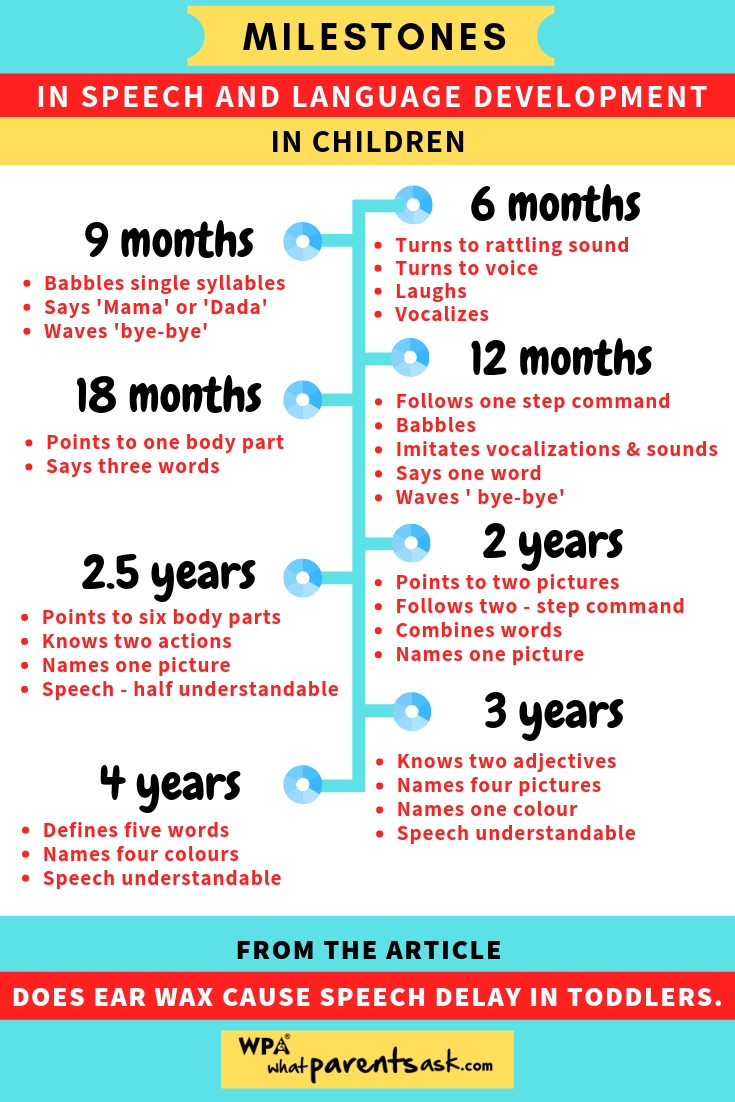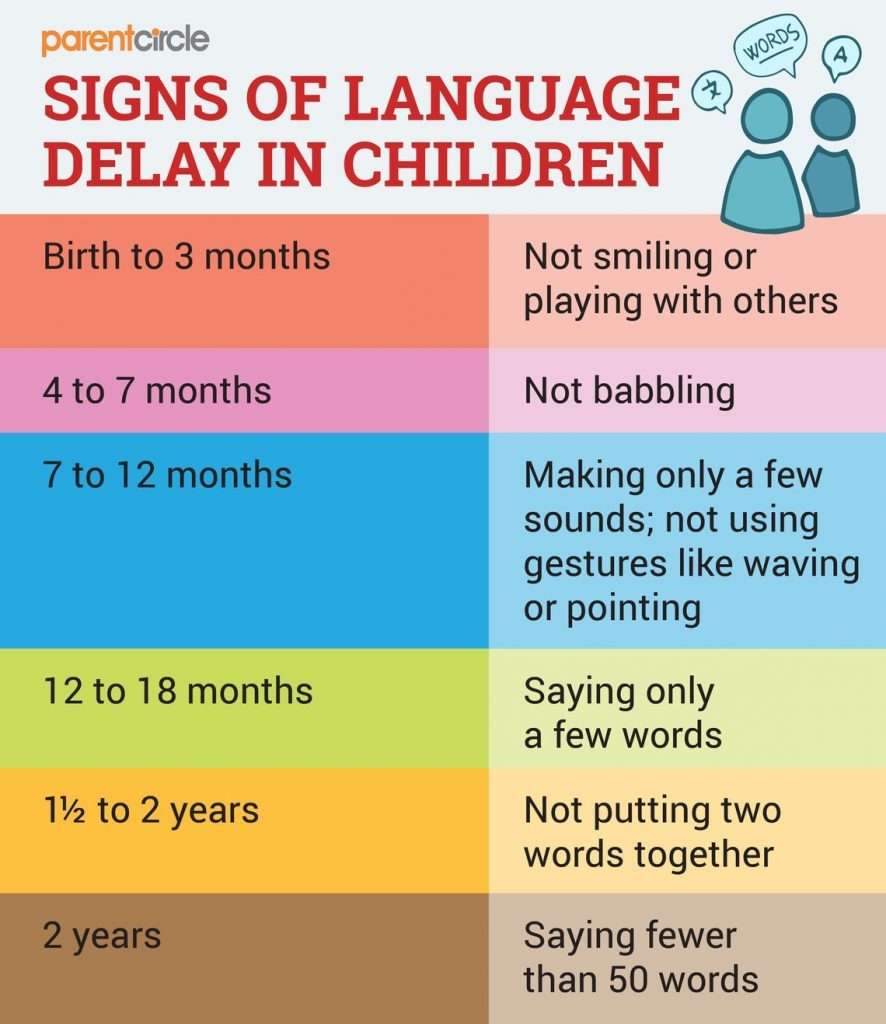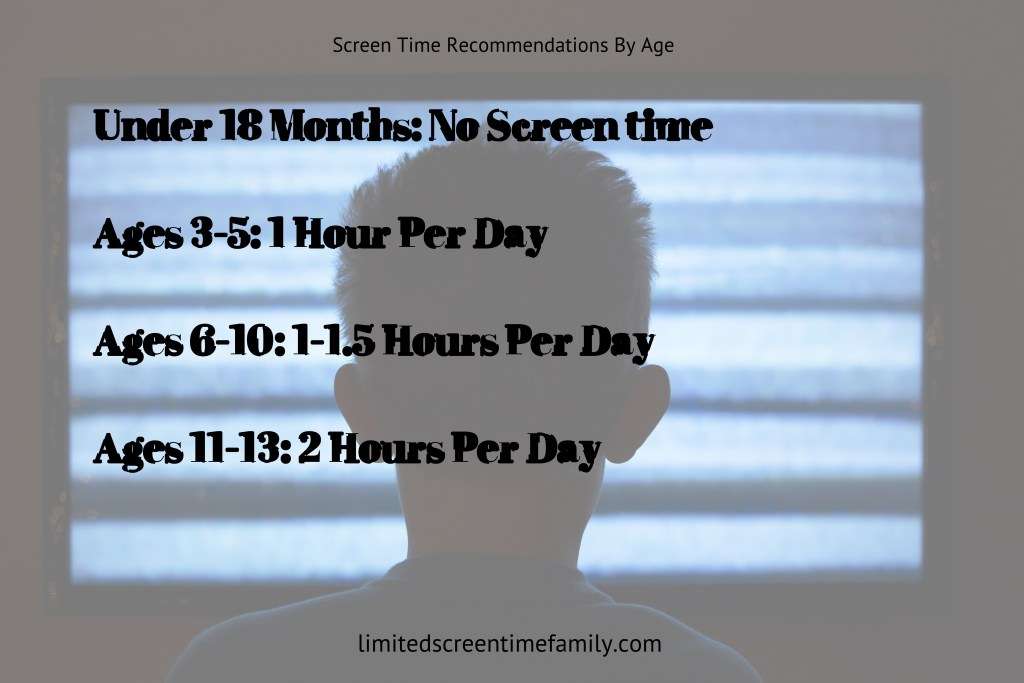Your Child Can’t Focus Properly
According to Psychology Today, another issue that pops up with too much screen time is that toddlers dont learn how to focus their eyes properly because theyre staring at a screen all day.
They really need to have plenty of interesting three dimensional stimuli to look out in order to learn how to focus.
The Difference Between Active And Passive Screen Time
While the term screen time is used as a broad generalization, not all screen time has a negative effect on the budding brains of children. Its important to make a key distinction between active v.s. passive screen time.
Passive screen time is defined as passively consuming content with little interaction or engagement. Putting your child in front of a glaring television screen is a common example. Theres often no creativity or cognitive thought involved, and children arent encouraged to physically or mentally engage with whats being shown. In other words, this type of screen time is largely sedentary.
Active screen time, on the other hand, is the healthy part of a balanced screen time diet. It encourages your child to interact, remain engaged, and stimulates their mind and creativity. Certain types of educational apps that involve two-way communication or language practice are wonderful examples of active screen time. So is video chatting with family or caregivers.
Speech therapy delivered online is another great example. With online speech therapy, children are actively engaged and participatory, sitting face-to-face with their speech therapist to practice speech and language skills.
How Speech And Language Delays Are Different
Although the two are often difficult to tell apart and frequently referred to together there are some differences between a speech and language delay.
Speech is the physical act of producing sounds and saying words. A toddler with a speech delay may try but have trouble forming the correct sounds to make words. A speech delay doesnt involve comprehension or nonverbal communication.
A language delay involves understanding and communicating, both verbally and nonverbally. A toddler with a language delay may make the correct sounds and pronounce some words, but they cant form phrases or sentences that make sense. They may have difficulty understanding others.
Children can have a speech delay or a language delay, but the two conditions sometimes overlap.
If you dont know which one your child may have, dont worry. Its not necessary to make a distinction to have an evaluation and start treatment.
Don’t Miss: What To Hang Above TV
Their First Word Is Likely To Be The Name Of A Device
Traditionally, a childs first words tend to be mama or dada, since they hear those words a lot from their parents since day one.
The Guardian warns that theres been at least one incident that a child allowed too much screen times first words were the name of a favorite device.
: PBS, CNN, The Independent, Psychology Today, Scary Mommy
Is My Baby Watching TV Really A Problem

Theres no doubt that being a parent is the toughest job youll ever have in life. Keeping a little one entertained 24/7 can wear on even the most creative moms and dads. So, its no surprise that many of us use the TV for an occasional break like to take a shower or send a few work emails.
But while experts say a certain amount of screen time for toddlers and older kids is okay, putting a baby under the age of 18 months in front of the TV, or any other screen is not.
Also Check: How To Connect Universal Remote To TV
What About Other Screen
Maybe. But, if so, it probably depends on the childs understanding of how video chats different from traditional, passive television-watching. Kids need to see that theyre involved a real, interactive conversation.
To see what I mean, consider an experimental study conducted by Sarah Roseberry and her colleagues . The researchers randomly assigned a group of toddlers to experience one of two types of adult conversation:
Under both conditions, toddlers attempted to communicate with the adult, but only the live adult responded appropriately to the childrens comments, questions, or facial expressions.
The pre-recorded adults talked in the manner of a television talk show host appearing to engage the audience, but obviously unable to react contingently to anything the kids did or said.
After these sessions, the toddlers were tested to see if theyd learned unfamiliar words that the adult had used. And the outcome?Only the kids whod engaged in real, live conversations picked up the new vocabulary.
The findings are supported by a more recent study, where researchers performed a similar test on even younger children . Babies who participated in interactive, online chats learned from the experience .
So yes young children can learn from video chats. But it may depend on children feeling a personal connection.
How Are Speech Or Language Delays Diagnosed
Being parents, we are always on the edge of what is right or wrong? What are the needs and wants of our child? Same way, when it is about their health, growth, and development, we are always on our toes. Therefore, if you feel anything like speech or language delay, see a Speech-Language Pathologist , also called Speech Therapist, immediately. Early diagnosis can help reduce and eliminate the problem sooner.
Diagnosis Procedure:
- A speech therapist is responsible for his diagnosis, so before making any he will thoroughly check your child by checking the following:
- Speech and language milestones.
- Receptive and expressive language.
- Your childs oral and motor status, such as mouth, palate, and tongue functioning while speaking, eating, drinking, etc.
- Standardized tests.
Recommended Reading: Is Nba TV On Sling
What Research Has To Say About Screen Time
A 2017 study by Dr. Catherine Birkin found that by the 18-month checkup, 20% of the children reported daily average handheld device use of 28 minutes, according to their parents.
Based on a screening tool for language delay, researchers found that the more handheld screen time a childs parent reported, the more likely the child was to have delays in expressive speech.
For each 30-minute increase in handheld screen time, researchers found a 49% increased risk of expressive speech delay.
There was no apparent link between handheld device screen time and other communications delays, such as social interactions, body language, or gestures. This is the first study to report a link between handheld devices and expressive language delay.
They Struggle To Mimic Parents In Games
Too much time on apps can lead to children being unable to mimic their parents properly, says Psychology Today.
Its very important that parents play mimicking games with their toddlers so they can learn how to do things like using a fork and because mimicking helps them master the basics of language.
Don’t Miss: How To Mirror Android Phone To Samsung Smart TV
Whats Typical For A 3
A typical 3-year-old can:
- use nouns, adjectives, and verbs in three- and four-word sentences
- form plurals
- ask questions
- tell a story, repeat a nursery rhyme, sing a song
People who spend the most time with a toddler tend to understand them best. About 50 to 90 percent of 3-year-olds can speak well enough for strangers to understand most of the time.
The Best Way To Help Child Language Development
Research indicates having positive, frequent, and direct conversation with them is one of the best ways to help your child develop speech and language skills. This social interaction is critical for early childhood development.
While you may worry about how much TV your toddler watches, this shouldnt be a major concern. Instead, focus your energy on engaging your child in real conversations, instead of the ones on TV.
When it comes to interactive TV shows for your toddler, heres a few recommendations:
- Peppa Pig
You May Like: How To Get Espn Plus On Samsung Smart TV
Speech And Language Disorders
A 3-year-old who can comprehend and nonverbally communicate but cant say many words may have a speech delay. One who can say a few words but cant put them into understandable phrases may have a language delay.
Some speech and language disorders involve brain function and may be indicative of a learning disability. One cause of speech, language, and other developmental delays is premature birth.
Childhood apraxia of speech is a physical disorder that makes it hard to form sounds in the right sequence to form words. It doesnt affect nonverbal communication or language comprehension.
What Could Be The Factors That Affect Language Development

9 Factors that Influence Language Learning for Kids Motivation. Is the child being forced to learn, or do they want to learn the language? Support at Home. Is another language spoken at the childs home? Prior Linguistic Knowledge. Learning Environment. Teaching Strategies. Comprehensible Input. Student Personality. Age.
Also Check: How To Connect TV To Alexa
Can Baby Learn Language Watching TV
The education of children up to the age of two cannot be improved by watching television or videos even programs with educational subtitles. By listening and interacting with adults, babies and toddlers have more interaction, learn new words and grow language skills at the same time.
Can Screen Time Cause Language Delays In Young Children
Researchers are beginning to publish more and more studies about the detrimental effects of screen time on language development.
This study by Chonchaiya and Pruksananonda found that children who began watching tv before 12 months and who watched more than 2 hours of TV per day were six times more likely to have language delays! Yikes!!
This study by Duch et. al. also found that children who watched more than 2 hours of TV per day had increased odds of low communication scores.
This is why the American Association of Pediatricians recommend no screen time at all until children are 18-24 months old.
You May Like: How Do I Connect My iPhone 7 To My TV
Why Is Speech And Language Important In A Childs Development
Being able to speak clearly and process speech sounds, to understand others, to express ideas and interact with others are fundamental building blocks for a childs development. Research suggests that good communication, language and literacy at a young age have the highest correlation with outcomes at school.
What Are The 3 Main Symptoms Of Autism
It is not easy to participate in a conversation. Its hard to connect with others thoughts. The person might not be able to comprehend if a person is happy or sad because of their inability to read body language and facial expressions. Its not possible to understand sarcastic or emotional meanings.
Also Check: How To Screen Mirror Android To Samsung TV
What Are The Stages Of Speech Development
Stages of Speech and Language Development 3 6 months. Listening & Attention. Watches face when someone talks. 6 12 months. Listening & Attention. 12 15 months. Listening & Attention. 15 18 months. Listening & Attention. 18 2 years. Listening & Attention. 2 3 years. Listening & Attention. 4 5 years. Listening & Attention.
Hang In There Were Going To Talk About Screen Time
Oh man do I hate this subject! Not so much as a speech-language pathologist but as a mom. Actuallyas a mom of children during a pandemic. This is NOT an easy subject to write about but I know its important so here we go. Hang with me as we discuss screen time and speech delays and what you can do to help.
I actually wrote this post many years ago and I had a much tougher SCREEN TIME IS EVIL GET RID OF IT ALL sort of recommendation. Today Im updating it and Im coming at you with much more love and support for you as a parent because I knowits hard. The pandemic made it even harder than it already was. And screens are pervasive in our lives. They are everywhere! Also, more and different research is coming out about screen time so its time to update. So maybe we need to look at the gray areas a bit more.
Recommended Reading: How Do I Stream My Phone To The TV
Can TV Programs And Cocomelon Cause Speech Delays And Tantrums
Despite recent claims on TikTokand disapprovalthere’s no definitive proof showing that CoComelon causes behavioral and/or developmental issues. “Without empirical research on the show CoComelon, there is no data to substantiate claims that this show is overstimulating due to the pace of the scenes,” Rebecca G. Cowan, Ph.D., LPC, NCC, BC-TMH, DCMHS, a professor in the college of social and behavioral sciences at Walden University, told Parents earlier this year. There is also no proof the show causes tantrums or speech delays.
TV as a whole, however, can be a contributor. “Studies have shown associations between excessive TV watching in early childhood and language, cognitive, and social-emotional delays,” says Michael Bauer, M.D., FAAP, pediatrician and medical director at Northwestern Medicine Lake Forest Hospital.
“If screen time replaces interactions with caregivers and peers, for example, then your child is more likely to have a speech delay,” Hanson adds. “However, some parents have found that highly educational, interactive TV can be a starting point for helping their children learn new vocabulary if they are older than 2.”
“Watching the shows with your child and sticking with high quality, educational programs such as Sesame Street and other PBS shows is the key to helping children understand what they are viewing and applying it to the world around them,” says Dr. Bauer.
What Is A Late Talker

As the name suggests, a late talker is a child who hasnt started speaking normally by the time they are between 18 and 36 months old.
These toddlers typically do display good motor skills, thinking skills, social skills, and even an understanding of the language theyre trying to speak. They just dont speak as much when compared to other kids their age.
Late-talking children may be able to communicate via heavily broken sentences, but they struggle to express what theyre truly trying to say.
It might seem like they know what they want to say and have the ability and knowledge to do so, but they struggle with actually speaking what is on their minds.
Of course, children within this age range will almost have trouble speaking to a point, rarely will a two-year-old child be spouting eloquent sentences throughout the day.
On the other hand, a child with a speech delay will struggle to get out the normal short sentences pieced together with basic words that other kids in their age group can say with relative ease.
Keep in mind that while children certainly do develop at their own pace, there are still certain widely agreed-upon speaking milestones that they should reach by a certain age as your childs brain is developing at a young age.
Recommended Reading: How To Connect iPhone To TV Airplay
Why Is TV Bad For Toddlers Is There A Certain Age Where Watching TV Is Good
TV may not necessarily be bad for toddlers, but its important to recognize the age where watching TV shows may have some benefits: with older children. That being said, there are a number of reasons that parents and caregivers should consider limiting TV time.
The Italian researchers from the Brain Science study recommend that for optimal language development, parents and caregivers should limit the use of digital devices.
Many researchers specializing in early childhood development have found that there are a number of negative health consequences associated with TV or digital media usage, including:
- A small but significant increase in BMI, obesity risk in minority children, and a pattern that leads to unhealthy weight gain later in childhood food advertising may be one culprit
- Fewer minutes of sleep per night just like adults, light emitted from screens can suppress melatonin and lead to poor sleep
- Overall child development, including cognitive, language, and social/emotional delays
Speech And Language Delay Treatment
Your child may not need treatment. Some children just take more time to start talking. But if your child needs treatment, the type will depend on the cause of the speech delay. Your doctor will tell you the cause of your childs issue and talk to you about treatment options. Your doctor may refer you to a speech and language pathologist. This person can show you how to help your child talk more and speak better, and also can teach your child how to listen or how to lip read.
Teaching young babies and children a version of sign language also can help them with their language development. Contrary to what some might think, using sign language with babies and young children does not delay their language development.
Other specialists your doctor may recommend you see include a psychologist , an occupational therapist , or a social worker . Your doctor may also suggest early intervention programs in your area. Many are associated with your local school district
You May Like: How Much Is Apple TV 4k
The American Academy Of Pediatrics Guidelines For Screen Time
- For children younger than 18 months, avoid usingscreen media other than video chatting. Parents should choose high-quality programming and watch it with them to help them understand.
- For children ages: 2 to 5 years, limit screen use to 1 hour per day of high-quality programs. Parents should still co-view media with children to help them understand what they are seeing and apply it to the world around them.
- For children ages 6 and older, place consistent limits on the time spent using media, and the types of media, and make sure media does not take the place of adequate sleep, physical activity, and other behaviors essential to health.
- Designate media-free times together, such as dinner or driving, as well as media-free locations at home, such as bedrooms.
- Have ongoing communication about online citizenship and safety, including treating others with respect on and offline .